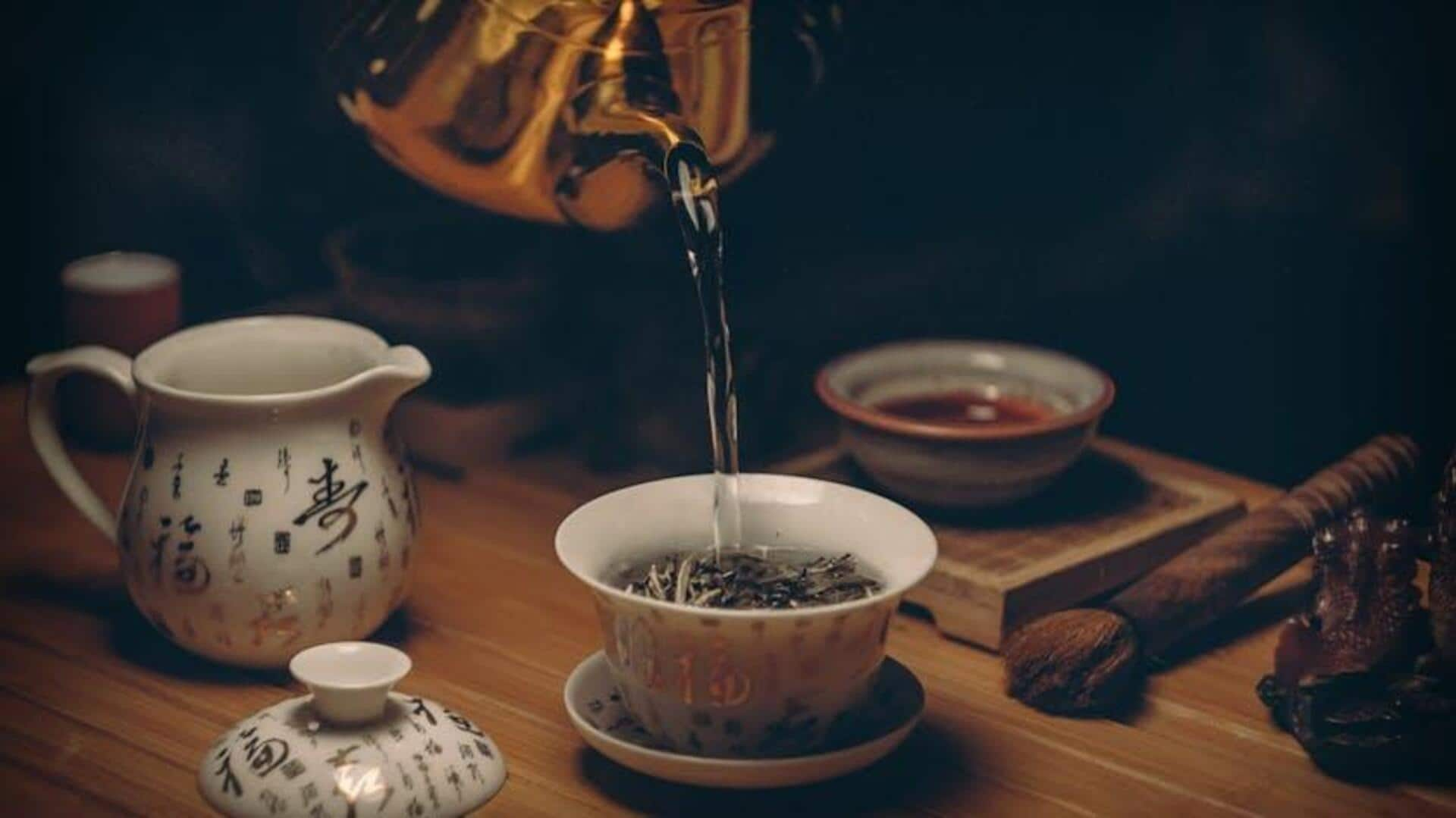
5 unique South Korean tea traditions
What's the story
From its rich cultural heritage, South Korea's tea traditions are an important part of the legacy. These traditions are a reflection of the country's history, philosophy, and way of life. From ceremonial practices to unique brewing methods, South Korean tea culture offers an interesting insight into the nation's values and customs. Here, we explore five distinctive tea traditions that make South Korea unique, when it comes to this ancient beverage.
#1
The art of darye
Darye is a traditional Korean tea ceremony that emphasizes simplicity and naturalness. Unlike more formal ceremonies in other cultures, Darye focuses on creating a relaxed atmosphere where participants can enjoy tea in harmony with nature. The ceremony involves careful preparation and presentation of green tea, often accompanied by traditional sweets. It is typically held in a serene setting, such as a garden or pavilion, allowing participants to connect with their surroundings.
#2
Unique tea ware
Korean tea ware is instrumental in elevating the entire experience of tea-drinking. Traditional Korean teapots/cups are usually celadon or porcelain-made, with intricate designs depicting natural elements such as bamboo or plum blossoms. Apart from being functional, these pieces double as works of art that add to the aesthetics of the ritual. The choice of teaware can affect the taste-aroma of tea, making it an important part of Korean tea culture.
#3
Seasonal teas
In South Korea, different teas are enjoyed according to the seasons. For instance, green teas like Nokcha are popular during spring for their fresh flavor profiles, while roasted barley teas like Boricha provide warmth during colder months. This seasonal approach ensures that you consume teas that complement both your environment and bodily needs throughout the year.
#4
Medicinal teas for wellness
Korean medicinal teas have long been consumed to promote health and well-being. These herbal infusions generally contain ingredients such as ginseng root or jujube fruit, which are known for their therapeutic properties to boost immunity or improve digestion, etc. When consumed regularly, these wellness-focused brews become a part of not just daily routines but also of holistic lifestyle choices adopted by many Koreans today.